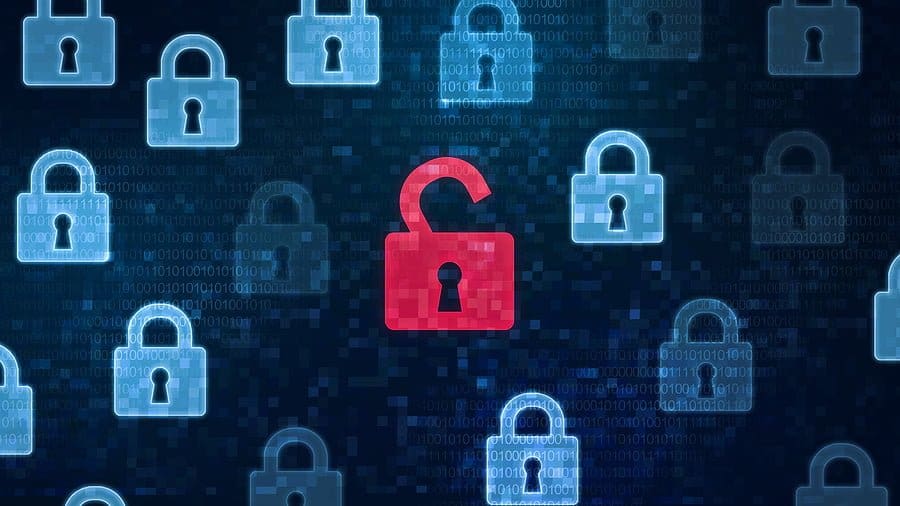Data security is essential for many businesses and organizations, whether big or small. It’s even more crucial in the digital age, where everything is connected through the internet.
In a nutshell, data security involves specific protocols, standard policies, and procedures that protect data from various risks, including but not limited to destruction, unauthorized access, and accidental loss. It’s done through both practice and technology, ensuring that important and sensitive company and customer information is safe and secure. Failure to do so can result in data breaches and financial loss.
In 2007, the Heartland Payment Systems’ corporate computer network was a target for a huge cyberattack, leading to the theft of 134 million credit cards. It impacted Heartland severely, forcing the company to pay $145 million in damages.
That incident and many others underline the importance of data security, especially today when the pandemic shifted almost all transactions online. Remote work and increasing online activities give hackers and cybercriminals plenty of opportunities to plot attacks that could be devastating. They can be in the form of phishing and other social engineering attacks, ransomware, DDoS attacks, and even inside threats.
It’s your responsibility to put safeguards in place and ensure that your customer data, from personal information to credit card details, are protected and secured at all times.
The Advantages of Data Security
It Prevents Data Loss
Data breaches can cost your organization an arm and a leg. It doesn’t matter which industry you belong to—as long as you are handling customers’ personal information, it’s imperative that it stays protected. With proper data security measures put in place, data loss can be mitigated.
It Protects Your Reputation
Customer loyalty should be every organization’s priority. Ensuring that customer information is safe can go a long way in maintaining your reputation and earning their trust. That way, both customers and stakeholders will feel comfortable interacting with your business.
Data Security Helps You Avoid Incurring Costs
Data breaches can lead to fines and legal actions taken against your business. You might be forced to pay a hefty sum to affected individuals. Moreover, it could likely lead to liquidation. On top of that, a significant cyberattack might even bring your whole system down and prevent you from providing services, risking the possibility of lawsuits and loss of revenue.
What Can You Do to Keep Your Data Protected?
Many experts say that the best solution is combining different techniques to improve data security posture. After all, a single method can’t solve a problem at once. Here are some of the best data security solutions that you can use for your organization.
Employing Data Detection and Classification Tools
It’s important to know and understand the data you have at hand. You must learn what type of data you have, how to keep information safe, and what to do with it. By classifying the data, it’s easier for you to determine which ones are sensitive and require utmost protection. It also helps you create scalable security solutions and apply proper security policies.
Making Use of Data Masking
Some organizations provide user training, sales demonstrations, and even software testing that often require an alternative to real, sensitive data. That is what data masking comes into play. This method allows you to recreate a fake version of your data by changing your data’s values while retaining the format. The alternative data are proven effective when they can’t be deciphered or reverse engineered. Some of the ways you can do this are through character substitution, encryption, and character shuffling, among many others.
Restricting Access to Data Within Your Organization
Some data security threats can come from the inside. To avoid this risk, it’s important that you manage digital identities within your organization. Your IT administrators can do it by putting restrictions on sensitive information and controlling user access. This ensures that important data won’t fall into the hands of bad actors.
Ensuring That Data Are Properly Encrypted
Data encryption is of utmost importance. This ensures that hackers can’t intercept, read, or process data, preventing them from acquiring sensitive information they can use to their advantage. Most compliance standards require this step from businesses and organizations.
Requiring Authentication and Authorization
Whether it’s internal or external access, it’s important to enforce multi-factor authentication. Users who need access to sensitive and personal data must go through the authentication process. There is also a strong need for organizations to lay down a good authorization framework within the company. This ensures users have proper access rights to data, restricting other actions beyond what is needed. It also gives you the power to clean up permissions and remove users who are no longer part of the organization.
Enabling Firewalls and Antivirus Protection
Safeguarding your data requires proper protection. This includes putting up firewalls that prevent unauthorized access. It also involves using a good antivirus solution to help detect, prevent, and remove malicious and harmful programs from devices, servers, and cloud systems. Remember, however, that these measures are not foolproof. You are still required to update them as needed.
Wrapping It Up
Threats in the cyber world are never static. They are constantly evolving, and as such, you are required to evolve with them or risk getting hurt. After all, as technology advances, cyberattacks are becoming more sophisticated. Hence, you need to keep up to date and eliminate the gaps in your data security strategy. It’s a continuous process that requires a long-term commitment. Testing your system regularly and educating your employees can go a long way in keeping your customer data safe and protected.

